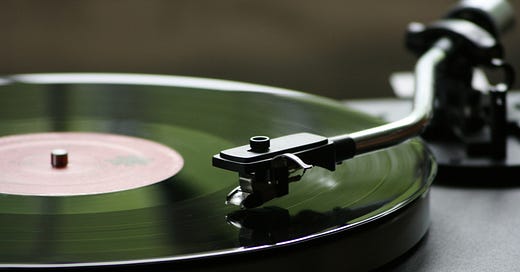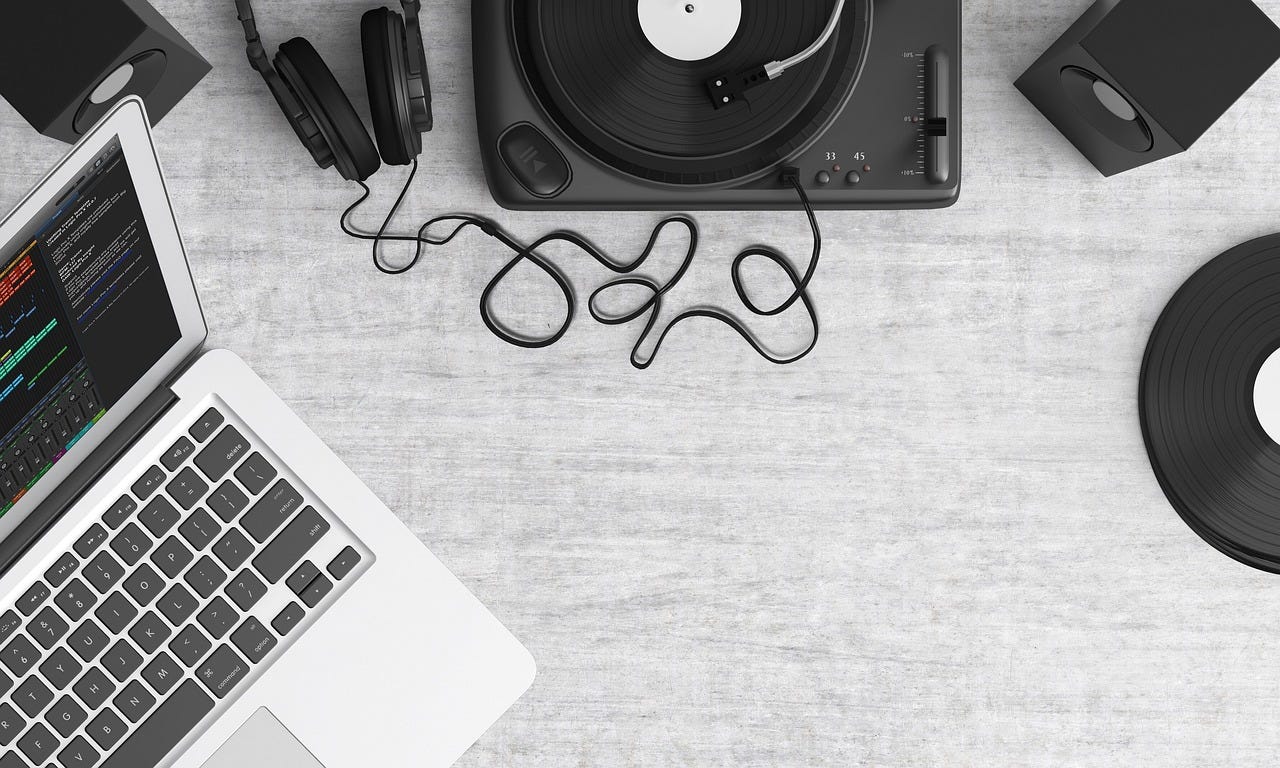Anyone who has ever taken a record out of its sleeve, placed it carefully on a turntable, lifted the tonearm, let the stylus gently drop to the edge of the disc, and heard that distinctive crackling sound before the music started playing will know that listening to vinyl is an experience. You are not simply pushing play or tapping keys on a screen. Vinyl is a format that requires engagement from the outset, not only with the music, but also with the act of listening. A format that saw its heyday in popularity in the sixties and seventies, it was deemed almost extinct for two decades, as the arrival of cassettes, CDs, and the Internet seemed to push it into oblivion. However, slowly but surely, vinyl somehow started crawling back into the mainstream, roughly seventeen years ago, and has been growing consistently since then. Last year, for example, vinyl was the leading format for album purchases in the US for the second consecutive year. While streaming platforms are amassing millions of subscribers per year and you can access entire music libraries virtually for free, this is undeniably a most peculiar phenomenon.
But why exactly? What’s all this fuss about vinyl? And does vinyl actually sound better? Vinyl is an analogue format, which means that the information is contained in the actual grooves of the record. As such, some form of mechanical operation is required to play it. In contrast, the information contained in a CD or digital audio file is encoded (i.e. the soundwaves are translated into a series of 0s and 1s), and then decoded again before you can actually hear it. There is an argument to be made that, during this digitalisation process, part of the information is inevitably lost. Without getting into the particulars of so-called lossless audio files (the creation of which, by necessity, still involves some sort of sampling), the truth is that vinyl has its own, distinctive sound. There is a special warmth and, when properly mastered, richness and depth in the music that other formats simply cannot replicate. As such, vinyl is considered the only truly lossless and analogue means of playing music to a high-resolution standard. Some will even argue that a turntable playing a vinyl record has more in common with a musical instrument than with a computer reading code. A vinyl record will not always necessarily sound better (as this will depend, in short, on your setup, the mastering and manufacturing of the record, and the condition of the vinyl itself), but it will for sure sound more present – sometimes even resembling a live experience.
However, getting started can be daunting. You need to become familiar with turntables, hi-fi systems, an entire glossary of technical terms, and have at least an understanding of basic cleaning and maintenance techniques to preserve your records. What’s more, there are usually several editions of the same vinyl record available on the market, with considerable differences in quality and price fluctuations. As you can see, choosing a vinyl record is not always a straightforward process.
One of the reasons why I started this Substack is because I wanted to share the knowledge and experience I have built over the years ever since my friend Juan from Argentina first got me into vinyl (shout out to Juan if you are reading this). I will always be grateful to him for this recommendation, and I am not embarrassed to admit that vinyl has redefined my life and identity in many ways.
I wanted to create a space to talk about vinyl and related content in a way that is realistic for people with jobs, significant others, pets, children, and the daily commitments of an ordinary life. While there is plenty of valuable information online, I often find that audiophile content is typically geared towards a certain type of individual who seemingly has all the time in the world to laboriously clean records as well as unlimited space to store them in very specific ways (which, let’s be honest, are not always the most convenient). These are the same individuals who swear that if your speakers are one inch too close to your turntable, your records will explode, the audiophile gods and goddesses will come down from heaven to haunt you, and you will go to hell. The vinyl and audiophile community can be wonderful in many ways, but there is a considerable amount of snobbery around. This is a space for people who are busy and have lives to live, but who but still want to enjoy music in the most authentic possible way at the best available price.
Apart from the intangible benefits of superior audio quality and a deeper connection to the music, vinyl is an asset class in its own right. It is the most valuable and authentic way to properly own a piece of musical art. This is something I discovered when I purchased records for less than £30 only to see their value increase to more than £300 in less than three years. We are talking about a 900% increase in value in 36 months. Since then, I have developed a method to spot records that sell for almost nothing but which have this type of growth potential. Whether you are an experienced record collector or completely new to this, stay tuned for more as I walk you through my vinyl journey.
I would love to hear your thoughts as we go along. This is a space where we can all learn from and inspire each other. In the comments below, please let me know where you are on your vinyl journey, why you are interested in collecting records, and what you would like to see in future posts.
That’s all for now. See you around. Happy spinning!







This is fantastic, Andres. Thank you so much for sharing your story and your expertise. The voiceover is a wonderful touch!
I am touched and excited.. Congratulations!